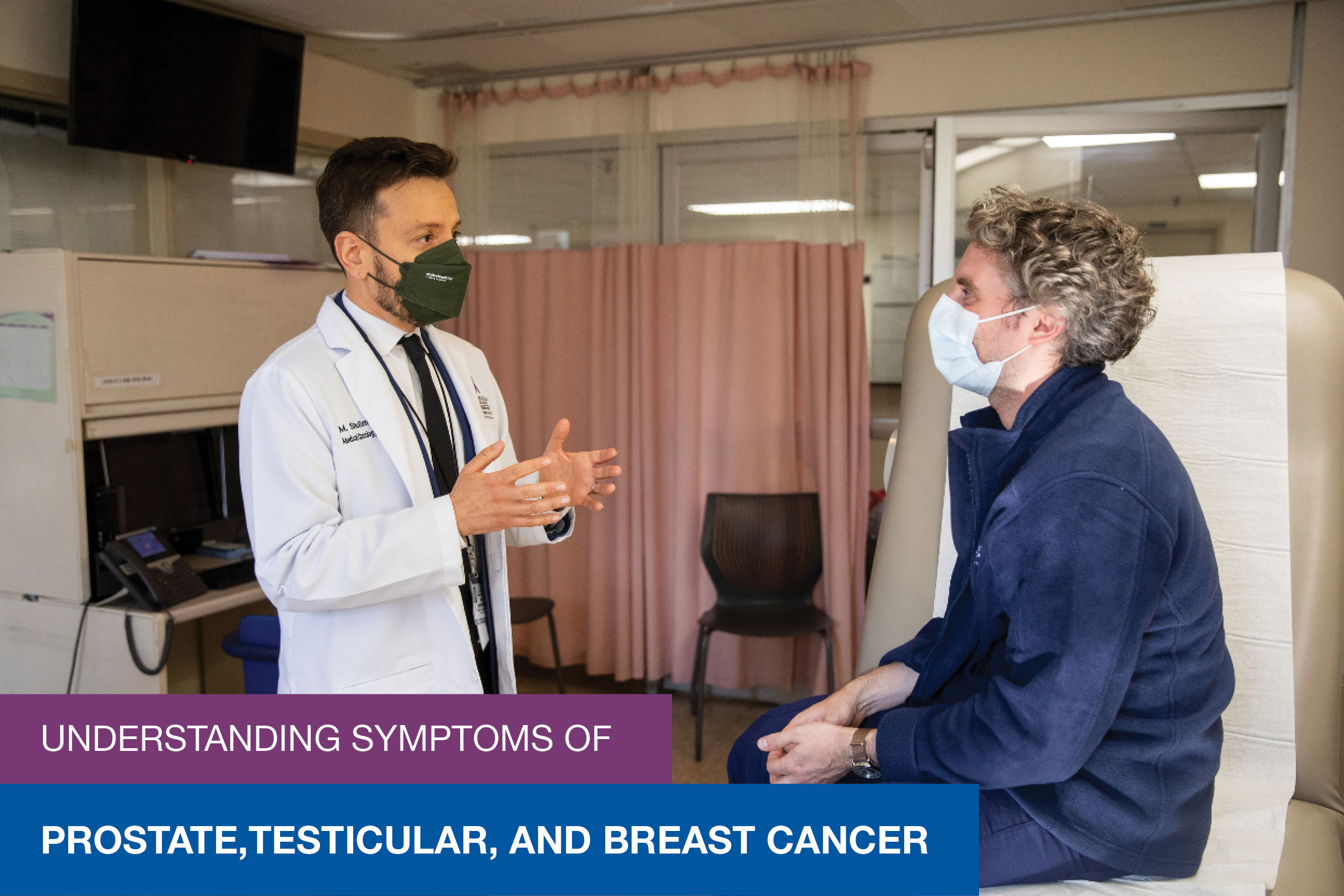Prioritizing Men's Well-Being: Understanding Symptoms of Prostate, Testicular, and Breast Cancer
Men's Health Week is a timely reminder to prioritize their well-being and take proactive steps toward maintaining a healthy lifestyle. Men need to be aware of potential symptoms that may indicate underlying conditions such as prostate, testicular, and breast cancer. By recognizing the key symptoms associated with these cancers, men can seek timely medical attention, increasing the chances of early detection and successful treatment.
Prostate Cancer:
Prostate cancer is the most common cancer among men but can often develop without presenting any early symptoms. However, some signs may include:
-
Frequent urination, especially at night
-
Difficulty starting or stopping urination
-
Weak urine flow or interrupted urine flow
-
Blood in the urine or semen
-
Pain or discomfort in the pelvic area
-
Erectile dysfunction or decreased libido
Men, particularly those over 50 or with a family history of prostate cancer, must undergo regular screenings and discuss any concerns with their healthcare provider.
Testicular Cancer:
When first diagnosed with testicular cancer, the average age of males is about 33. While self-examination is recommended, it is also essential to be aware of the following symptoms:
-
A lump or swelling in the testicles
-
Pain or discomfort in the testicles or scrotum
-
A feeling of heaviness in the scrotum
-
Changes in the size or shape of the testicles
-
Fluid buildup in the scrotum
Any persistent changes or abnormalities should be promptly examined by a healthcare professional. Early detection of testicular cancer can significantly increase the chances of successful treatment.
Breast Cancer in Men:
Although rare, breast cancer can occur in men. Symptoms to be mindful of include:
-
A painless lump or thickening in the breast tissue
-
Changes in the nipple, such as inversion, scaling, or redness
-
Nipple discharge, including blood
-
Changes in the size or shape of the breast
-
Swelling or lumps in the lymph nodes under the arm
While breast cancer predominantly affects women, men should not overlook these symptoms. Any concerns should be discussed with a healthcare provider for further evaluation.

